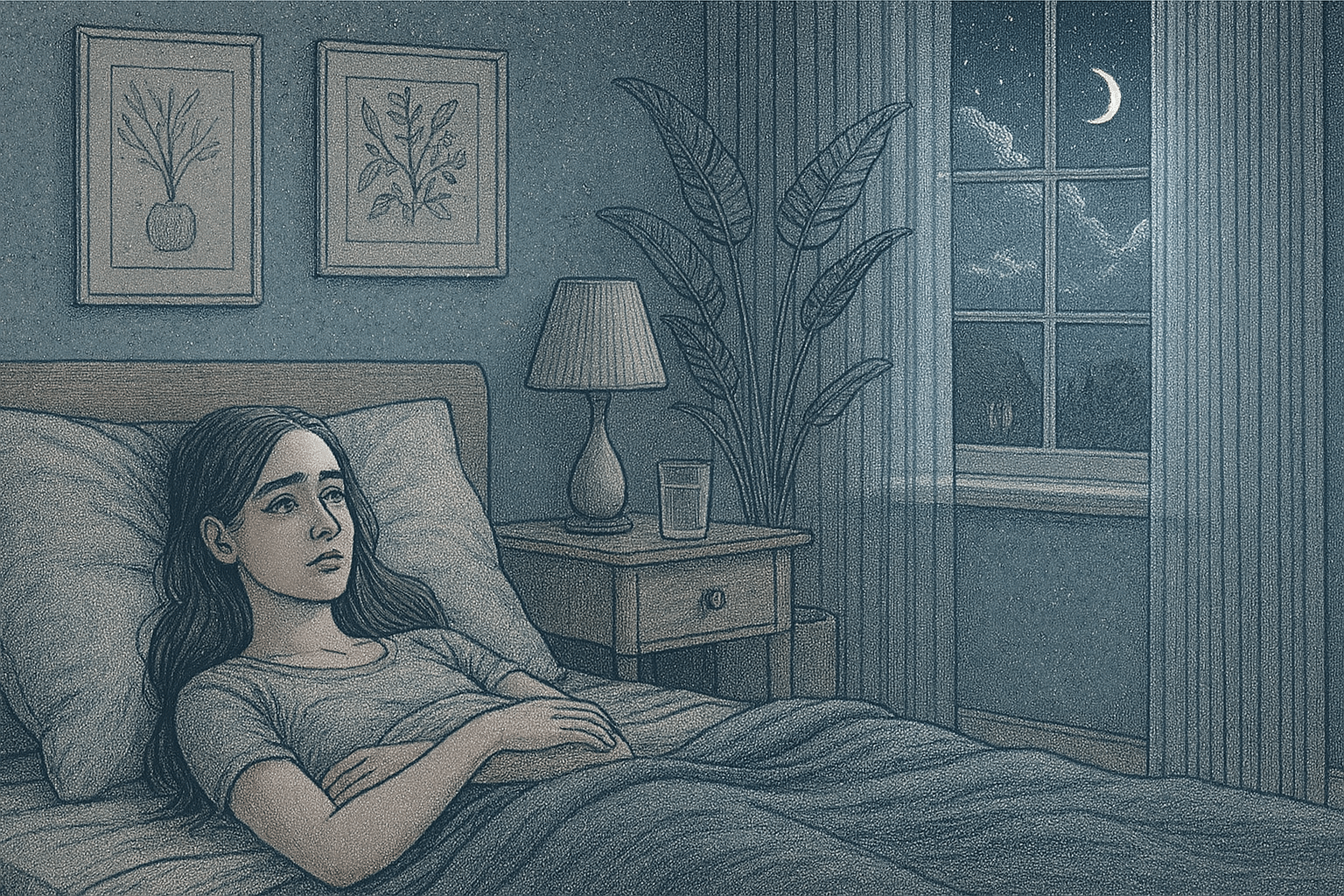Key Takeaways
- Depression is often mistaken for laziness, but they’re not the same! Depression is a medical condition, while laziness is a choice or habit.
- More than 90% of people with depression report fatigue, which can easily be misunderstood as a lack of motivation.
- Unlike laziness, depression comes with deeper symptoms like persistent sadness, loss of interest in things you once enjoyed, and low energy even after rest.
- Depression affects brain chemistry and neurotransmitters, making simple tasks genuinely difficult rather than a matter of willpower.
- AMFM Mental Health Treatment offers personalized care for adults with depression through residential, PHP, and IOP programs. With expert teams, tailored plans, and insurance support, AMFM helps you find lasting relief with compassion and understanding.
The Critical Difference: When “Lazy” Is Actually Depression
Laziness and depression can look alike, but they come from very different places. Depression is a medical condition that affects how the brain functions, while laziness involves choosing comfort over effort. That difference changes everything. When someone with depression seems unmotivated, it’s often because they’re physically and mentally drained; getting up, making decisions, or even moving can feel impossible.
More than 90% of people with depression deal with constant fatigue. This kind of exhaustion doesn’t go away with rest. It can make everyday tasks feel overwhelming. What others call procrastination might actually be a sign of the brain struggling to function properly, not a lack of care or effort.
Laziness is a different experience entirely. It shows up when someone has the energy and ability to act but avoids effort. They may put off chores or work but still engage fully in things they enjoy. It’s temporary, and when motivated, that energy can shift quickly.
Depression changes how people feel pleasure, focus, and motivation. These shifts happen at a chemical level, making it hard to engage, even when the desire is there. Calling it laziness only adds guilt and makes things worse. Knowing the difference helps people get the right support, compassion, and care they actually need.
Founded in 2010, A Mission For Michael (AMFM) offers specialized mental health care across California, Minnesota, and Virginia. Our accredited facilities provide residential and outpatient programs, utilizing evidence-based therapies such as CBT, DBT, and EMDR.
Our dedicated team of licensed professionals ensures every client receives the best care possible, supported by accreditation from The Joint Commission. We are committed to safety and personalized treatment plans.
8 Key Signs That Indicate Depression, Not Laziness
1. Persistent Feelings of Emptiness or Sadness
Depression often brings a lasting sense of sadness, numbness, or emotional heaviness that lingers even when life appears fine. Unlike passing moods or dissatisfaction, this emotional weight sticks around regardless of achievements or positive experiences. It dulls your ability to feel joy, creating a low, flat emotional state that laziness doesn’t cause.
2. Loss of Interest in Previously Enjoyed Activities
One of the clearest signs of depression is losing interest in the things that once brought you joy. Hobbies, social time, even comfort shows or foods can suddenly feel pointless. It’s not that you’re avoiding effort; it’s that you no longer feel any emotional reward. That internal spark is missing. Laziness usually means avoiding boring or demanding tasks, but still enjoying pleasurable ones. With depression, even easy, enjoyable things feel dull or unimportant.
3. Sleep Changes (Insomnia or Oversleeping)
Sleep issues are a major part of depression. You might lie awake for hours, fall asleep only to wake in the early hours, or sleep 10–12 hours and still feel like you haven’t rested. These disruptions can flip from one extreme to the other. It’s not about choosing to rest more; it’s your body struggling to regulate itself. Laziness might involve sleeping in now and then, but depression hijacks your sleep cycle and leaves you feeling constantly drained, no matter how much time you spend in bed.

Depression can trap you in a cycle of lying awake for hours or sleeping endlessly but never feeling rested, hijacking your body’s natural sleep regulation.
4. Decreased Energy Despite Adequate Rest
Exhaustion is a hallmark of depression. Even if you eat well, sleep enough, and avoid overworking, you still feel like you’re running on empty. It becomes hard to manage everyday tasks. This is different from simply avoiding effort, as your energy feels completely out of reach.
5. Difficulty Concentrating or Making Decisions
When you’re depressed, even simple decisions can feel impossible. You might spend hours trying to reply to an email, reread the same paragraph five times, or feel mentally frozen when asked a basic question. Your thoughts may feel slow, scattered, or stuck. This cognitive fog is more about the brain struggling to function clearly. Laziness might involve avoidance, but it doesn’t usually interfere with basic thinking or strip away your ability to focus.
6. Physical Symptoms Like Headaches or Digestive Issues
Depression often shows up in the body. You might feel aches, tension, stomach problems, or general discomfort that doesn’t seem to have a medical explanation. These symptoms are real and often worsen when depression deepens. Laziness doesn’t cause these physical reactions. When someone pulls back from daily life and also reports feeling physically unwell, it’s more likely that depression is involved, not a lack of effort or discipline.

Depression doesn’t just affect your mood, it shows up physically with real aches, stomach problems, and unexplained discomfort that doctors can’t always pinpoint.
7. Feelings of Worthlessness or Excessive Guilt
With depression, it’s common to feel like you’re failing at everything, no matter how much you’re actually doing. You might ruminate over minor mistakes, feel like a burden to others, or believe you’re not good enough. These thoughts are constant, painful, and irrational, and they feed the cycle of withdrawal and self-doubt. Laziness might come with some regret or annoyance, but it doesn’t cause this kind of deep, ongoing self-judgment.
8. Thoughts of Death or Suicide
This is one of the most serious and clear indicators of depression. Thoughts about dying, wishing you wouldn’t wake up, or imagining life without you are signs of deep emotional pain, not laziness. These thoughts can be quiet and passive or more intense and planned. They reflect a loss of hope, not a lack of motivation. If you or someone you know is having these thoughts, it’s time to reach out for help; call 988 or speak with a mental health professional immediately.
Effective Treatments for Depression
Therapy Options That Work
Several talk therapies have proven effective for treating depression. Cognitive Behavioral Therapy (CBT) teaches you how to spot and shift negative thought patterns, often showing results within a few months. At AMFM, CBT is a core part of our treatment offerings, guided by therapists skilled in helping clients build lasting tools for change.
Interpersonal Therapy (IPT) helps improve strained relationships and social dynamics that may worsen mood. Acceptance and Commitment Therapy (ACT) takes a different route, focusing on accepting difficult thoughts while moving toward meaningful actions. While approaches vary, progress usually requires consistency and patience. Therapy isn’t instant, but it builds lasting change when you stick with it.
Lifestyle Changes That Support Recovery
Daily habits play a powerful role in supporting treatment. Regular exercise, quality sleep, and balanced meals can help stabilize mood and energy. Social connection, even in small doses, counters isolation. Mindfulness practices like meditation or deep breathing help calm mental noise. These changes won’t replace therapy or medication, but they make it easier for professional treatment to work, and help lower the risk of relapse.
AMFM: Where Your Story of Healing and Self-Discovery Begins

Healing happens best in environments that feel like home rather than clinical settings, where peaceful spaces and thoughtful design support genuine recovery and connection.
It’s easy to feel stuck when you’re low on energy, losing interest in things, or just trying to push through each day. At AMFM, we understand how heavy that can feel. We support adults facing depression, anxiety, PTSD, bipolar disorder, and schizophrenia with care that’s personalized, respectful, and rooted in real experience.
Every person’s path looks different. That’s why we focus on tailored treatment. When you reach out, our team handles the insurance process so you can breathe easier. Once in our care, we build a plan around your needs and adjust it along the way as you make progress. The goal is to meet you with the right level of support at each stage.
Our programs include both full-time residential care and options where you can return home each day. You’ll work closely with board-certified psychiatrists and licensed therapists who provide consistent, expert guidance.
With locations in California, Virginia, and Washington, our homes are designed to feel peaceful and private. With smaller groups, there’s more space for genuine connection and focused care. Meals are freshly prepared by on-site chefs, and we include fitness activities, nature outings, and other wellness-centered routines to help you feel more grounded.
You won’t be left to figure out costs on your own. We partner with many major insurance providers and help you understand what’s covered. For those using private pay, we walk you through clear and fair options that don’t add stress to the process.
If you’ve been carrying too much on your own, this could be the time to reach for a free to confidential assessment, and could be the first step toward feeling lighter.
Frequently Asked Questions (FAQ)
Can depression come and go, or is it always constant?
Depression can come in cycles. Some people feel fine for stretches, then symptoms return. This can look inconsistent to others, but during a depressive episode, functioning becomes much harder. Unlike laziness, depression doesn’t respond to motivation or pressure, it follows its own pattern.
Is it possible to have both depression and ADHD?
Yes, and it’s common. ADHD affects focus and task management, while depression lowers energy and motivation. When combined, symptoms can overlap and feel overwhelming. Treating both is important, as focusing on one often leaves lingering struggles.
How long does depression treatment typically take to work?
Medication can take 4–6 weeks to show full results, and therapy usually starts helping within a few sessions. Progress is gradual, not instant, but with consistency, most people begin to feel better over time.
Can depression cause physical pain?
Absolutely. Many people with depression experience headaches, muscle tension, or stomach issues. These physical symptoms are real and often improve with treatment, making depression very different from simple disinterest or laziness.
Is treatment at AMFM covered by insurance?
AMFM is in-network with many major insurance providers and most PPO plans, often covering 100% of treatment costs after deductibles. Our experienced team assists clients in navigating insurance benefits and provides private pay options to make care accessible.
If you need further assistance or want to learn more about AMFM’s specialized mental health treatment programs, feel free to reach out for a free, confidential assessment.












